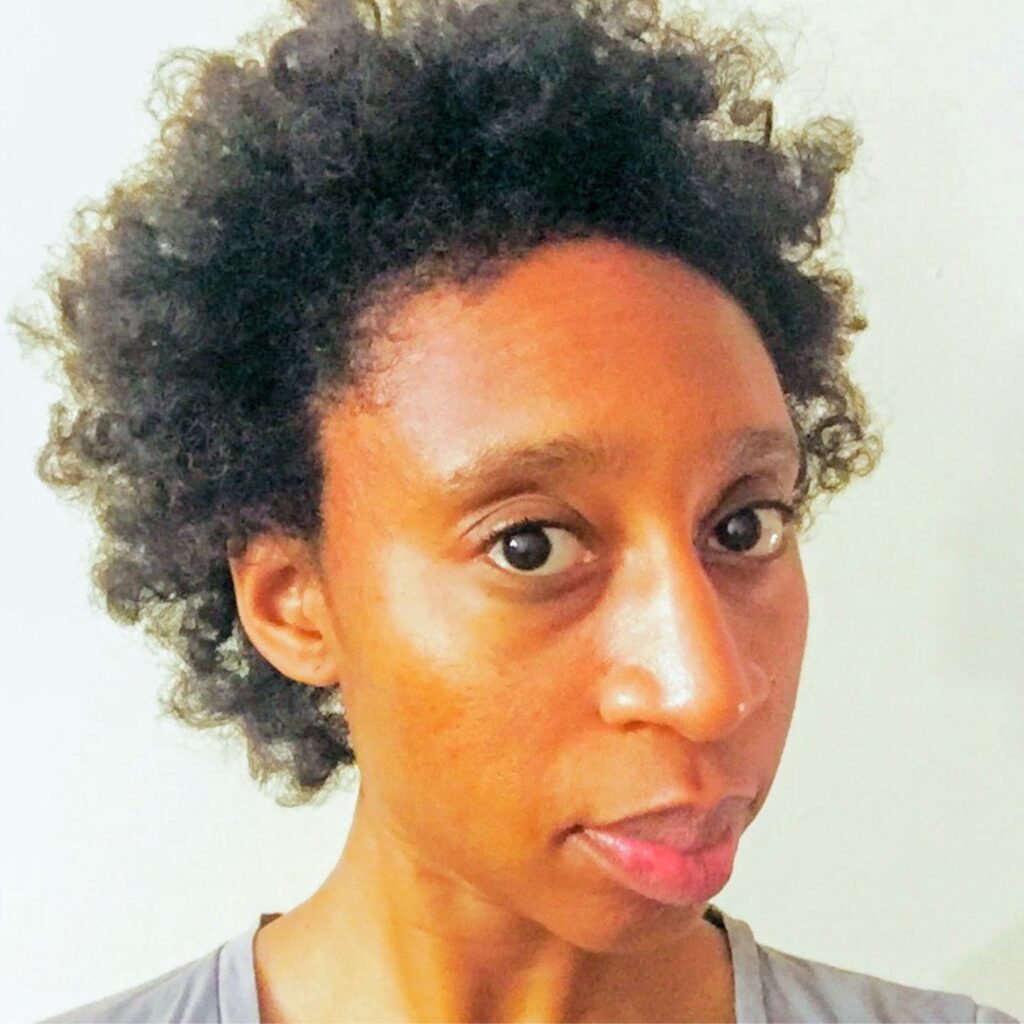 My people are from Ohio; I am from a long line of people born and raised there, yet have roots in Alabama, Tennessee, Florida, Virginia and possibly elsewhere. Both sides of my family are products of the Great Migration. I was raised in a loving family, rooted in cultural pride, the power of education, self-awareness, self-determination, love and a commitment to service and speaking up for and defending what we understood as justice. My family loved and appreciated a good book, art, music and always a good laugh.
My people are from Ohio; I am from a long line of people born and raised there, yet have roots in Alabama, Tennessee, Florida, Virginia and possibly elsewhere. Both sides of my family are products of the Great Migration. I was raised in a loving family, rooted in cultural pride, the power of education, self-awareness, self-determination, love and a commitment to service and speaking up for and defending what we understood as justice. My family loved and appreciated a good book, art, music and always a good laugh.
I believe that my mother was the first to introduce my siblings and me to Black history and the histories of Black people around the world. Through oral histories and folklore, books, plays, poetry, music, history and art, I learned about the histories—and shared oppression and cultures—of Black, Indigenous and People of Color from all around the world, fairly early in life.
In my mother’s telling of family stories, I grew to understand just how our history impacted or shaped the lives and opportunities, or lack of or limited in range, of family members, and I guess, in a sense, mine. She told them so we would know and understand how far we came, understand the struggle, instill a sense of familial and cultural pride and, as I grew to understand better nearing adulthood, to impress upon us that for whom much is given, much is expected. So for me, history became pretty tangible; history as the past, present and future. I am remembering what James Baldwin wrote in “I Am Not Your Negro,” and, of course, he says it best: “History is not the past. It is the present. We carry our history with us. We are our history.”
Growing up as a public-school student in a diverse and progressive community, a lot of my coursework, teachers and my extracurricular activities focused on learning about injustices, centering peace and justice for everyone. Two standout memories I remember, and my father often reminds me of: at 14 years old attending protests against a sports team name and mascot that were steeped in racism and disrespect for Indigenous communities and histories (in 2021 the team finally changed their name and mascot, thankfully); and another at the age of 15-16, I was trained and served as a docent to the Anne Frank exhibit that focused on documenting the atrocities of the Holocaust and educating young people to center justice, equality and peace. So, my journey and grounding in justice-driven work were really centered in my formative years and continued into adulthood.
Black History Month: A Celebration and a Reminder.
I genuinely respect and appreciate all the struggles and battles my ancestors fought to even have Black History Month in the United States. I also believe that Black History is U.S. History. So, I can appreciate that it still serves as a vital reminder and space to acknowledge, learn about, celebrate and center Black histories, people, cultures and joy. I feel that every day is Black History Month. And until people who identify as Black are understood, protected, honored, valued, respected and treated as fully realized, whole and dynamic human beings in the U.S., 365 days of the year, then yes, I guess it is still meaningful and needed.
That said, I still swell up with pride, joy and sometimes fury when I hear and sing the Black National Anthem and take in James Weldon Johnson’s timeless lyrics.
Identity and Career: A Journey of Service
As a child, I dreamt of growing into many professions—some careers I imagined for myself, others were offered up or suggested by others. I was and still am, heavily influenced by my mom, a lifelong public school educator, so I always understood and wanted to work in service of or help others and promote justice, peace and collective freedom. As a youth, I was also enamored by people I considered cultural and societal changemakers and diplomats—Josephine Baker was my first idol, along with Susan Rice, Angela Davis, Ralph Bunche, Nina Simone, Nelson Mandela, Paul Robeson, James Baldwin, Miriam Makeba and Charlayne Hunter-Gault. I spent my early career working in public diplomacy and cultural exchange and then decided to pivot towards working with forcibly displaced communities after living and working in Egypt. So yes, my identities, familial histories, lived experiences, and–arguably levels of privilege– granted me specific lenses and perspectives to see the world and seek to work to change it in my own small way.
Any positive progress in recognition of Black achievement and contributions in the United States?
This question reminds me of something that activist, professor and Pulitzer-Prize winning journalist Nikole Hannah-Jones said in a panel discussion in 2019, and I’ll paraphrase it: “Considering all that Black people experienced and endured in this country… I think we’re doing great.”
Are there any words of encouragement or wisdom I can offer others? Well, I believe that our ancestors, creators and thinkers present and past offered us ample wisdom through song, protest chants, raps, rhythms, sculptures, music, images, writing and imaginations.
Halima Adams is CWS’ Director of Diversity, Equity and Inclusion. To learn more about CWS’ Platform on Racial Justice, click here.
